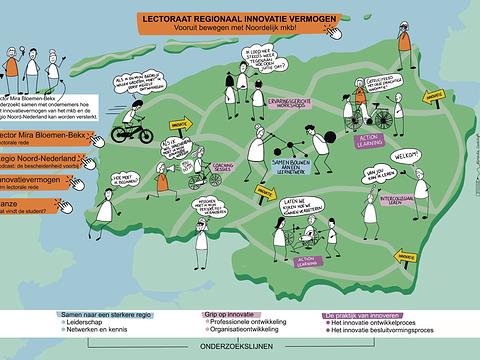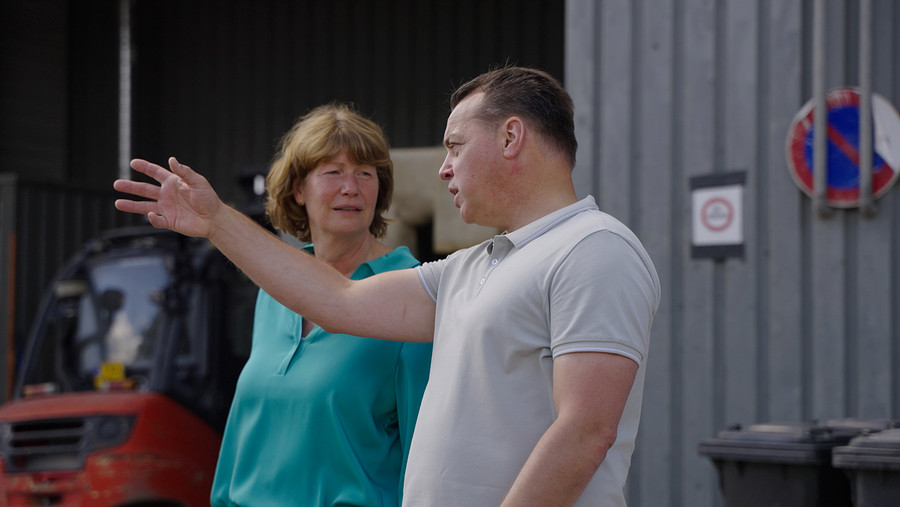
Small and medium-sized enterprises (SMEs) in the Northern Netherlands face major challenges: technological developments, changing customer needs, sustainability demands, and labour market shortages all call for continuous renewal. Yet, for many entrepreneurs, it remains difficult to embed innovation structurally in their business operations. How can entrepreneurs stay up to date, harness their employees’ talents, and find the time and resources to learn and innovate? The professorship Regional Innovation Capacity supports entrepreneurs in this process.
Practice-oriented research with and for entrepreneurs
The Regional Innovation Capacity professorship, led by Dr. Mira Bloemen-Bekx, collaborates with entrepreneurs to explore how innovation capacity can be strengthened. We focus on the processes and choices that lead to future-proof companies. Central questions include:
- How do entrepreneurs make innovation decisions?
- What role does the regional ecosystem — networks, governments, knowledge institutions — play in enhancing innovation capacity?
- How can we learn from and with each other so that innovation becomes structural rather than incidental?
Regional learning network: learning, changing, and innovating together
A key focus area is the development of a regional learning network. This network offers entrepreneurs a platform to share experiences, learn collectively, and experiment with new ways of organising and innovating. It is a place where practice and research reinforce each other: entrepreneurs gain greater control over innovation, while the professorship gathers insights that can be directly applied within the region.
Family businesses as examples of sustainable and impactful innovation
Family businesses are deeply rooted in the Northern Netherlands and play a vital role in innovation and broad prosperity. The inaugural lecture emphasises how these companies, precisely because of their long-term vision and strong ties to the region, can be frontrunners in sustainable and meaningful innovation.
Innovation as a shared responsibility
Innovation is not an individual achievement but a collective endeavour. By sharing knowledge, collaborating and investing in learning, the professorship is building an ecosystem in which companies, employees and the region as a whole can thrive. In doing so, we contribute to employment, well-being, and a future-proof economy in the Northern Netherlands.
Want to learn more?
Explore the interactive presentation featuring videos, a podcast, and the full inaugural lecture by Dr. Mira Bloemen-Bekx on this page. Discover how we are working together with SMEs to build an innovative and resilient region.
Explore the interactive presentation


Watch the video about the Regional Innovative Capacity professorship.
Contact
-

Dr. Mira Bloemen-Bekx
Professor Regional Innovative Capacity
